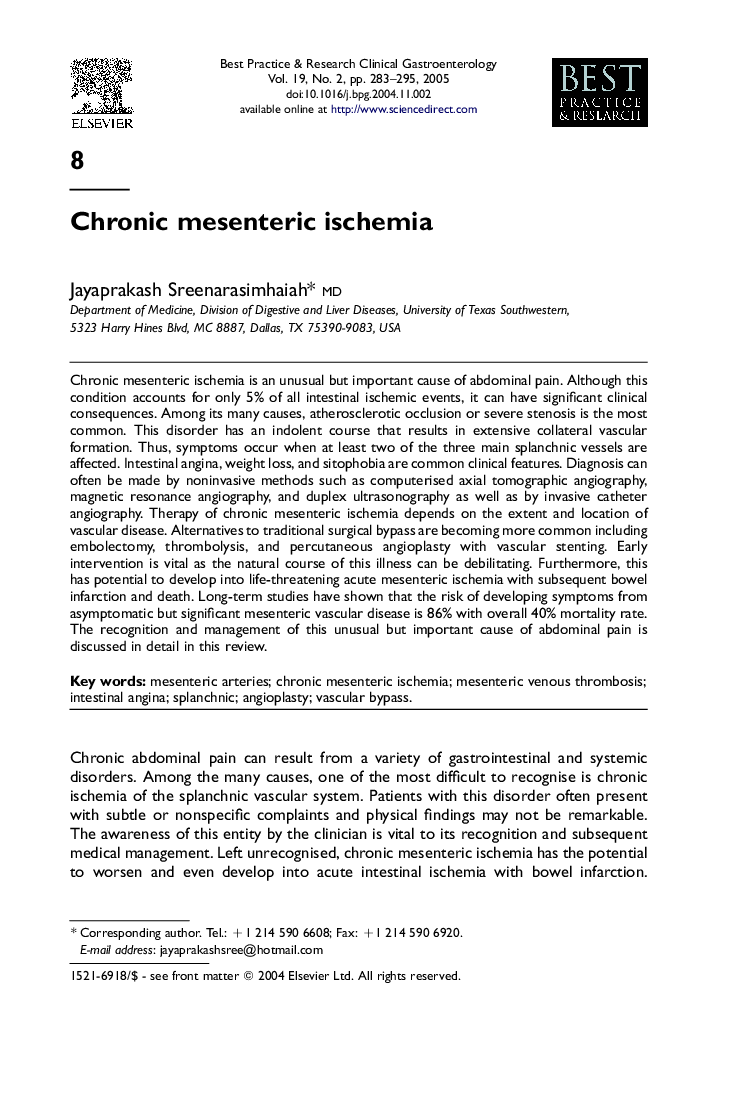| Article ID | Journal | Published Year | Pages | File Type |
|---|---|---|---|---|
| 9236131 | Best Practice & Research Clinical Gastroenterology | 2005 | 13 Pages |
Abstract
Chronic mesenteric ischemia is an unusual but important cause of abdominal pain. Although this condition accounts for only 5% of all intestinal ischemic events, it can have significant clinical consequences. Among its many causes, atherosclerotic occlusion or severe stenosis is the most common. This disorder has an indolent course that results in extensive collateral vascular formation. Thus, symptoms occur when at least two of the three main splanchnic vessels are affected. Intestinal angina, weight loss, and sitophobia are common clinical features. Diagnosis can often be made by noninvasive methods such as computerised axial tomographic angiography, magnetic resonance angiography, and duplex ultrasonography as well as by invasive catheter angiography. Therapy of chronic mesenteric ischemia depends on the extent and location of vascular disease. Alternatives to traditional surgical bypass are becoming more common including embolectomy, thrombolysis, and percutaneous angioplasty with vascular stenting. Early intervention is vital as the natural course of this illness can be debilitating. Furthermore, this has potential to develop into life-threatening acute mesenteric ischemia with subsequent bowel infarction and death. Long-term studies have shown that the risk of developing symptoms from asymptomatic but significant mesenteric vascular disease is 86% with overall 40% mortality rate. The recognition and management of this unusual but important cause of abdominal pain is discussed in detail in this review.
Keywords
Related Topics
Health Sciences
Medicine and Dentistry
Endocrinology, Diabetes and Metabolism
Authors
Jayaprakash MD,
